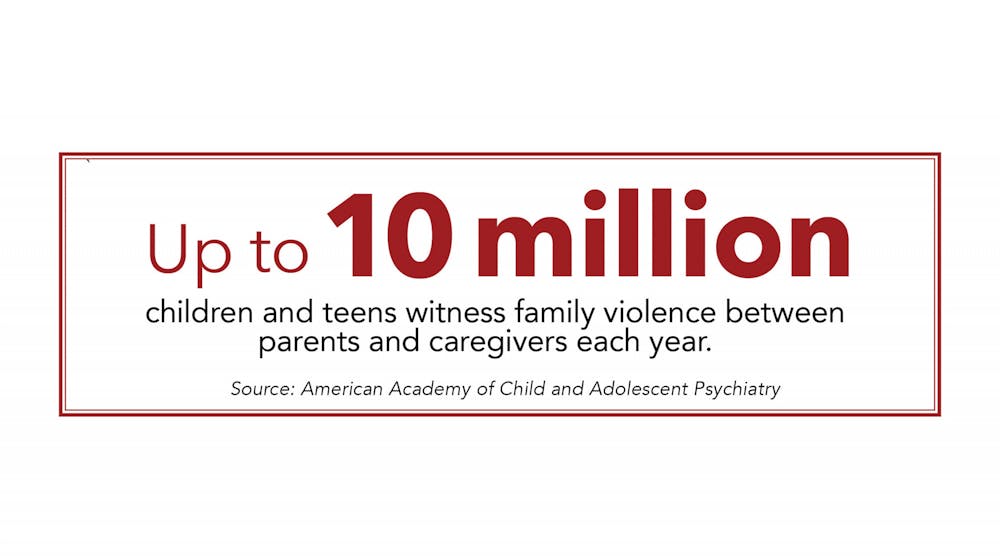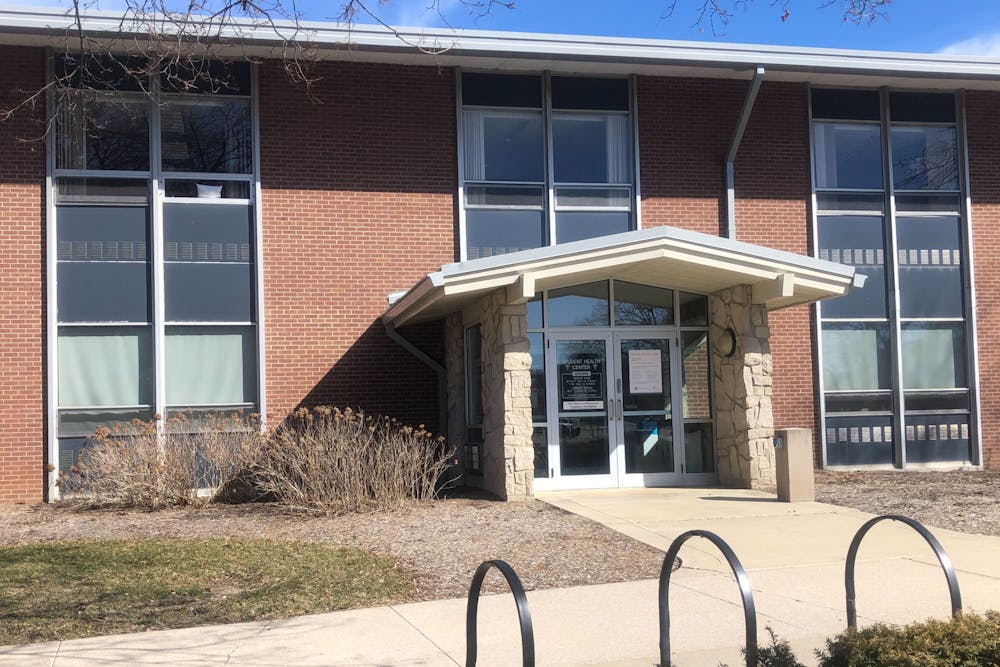Screaming. Intimidating. Blaming. Threatening. These are all tactics an abuser can use on a survivor.
“If your partner keeps close tabs on you, they want to know where you're going, they go through your phone without permission or they try to isolate you from friends and family. Those are all signs of an unhealthy relationship,” Anna McGee, Ball State University Center for Survivor Support victim advocate, said.
Furthermore, McGee said there are other forms of abuse such as minimizing, denying and blaming, which can be summarized into “gaslighting” someone. According to Newport Institute, gaslighting is an abuse tactic, which occurs when someone manipulates an individual into doubting their own thoughts and perspectives.
“More of the way how it’s used is making you think of things that may not be true,” McGee said. “Making light of abuse or anything such as saying ‘You’re being emotional’ or ‘You’re taking this too seriously,’ they’re all signs of gaslighting.”
McGee also said abusers sway their partners into feeling at fault for the abuse and outright oppose any claims they abused their victims. The Power and Control Wheel created by the Domestic Abuse Intervention Project in Duluth, Minnesota, outlines similar abuse strategies as a tool providing context for the methods utilized by abusers to prevent their partner from leaving a toxic relationship.
As a victim advocate, McGee offers confidential advocacy and support in areas such as dating violence, stalking, sexual assault and similar areas. Her role mainly comes down to helping students receive the proper resources for their specific situation.
“If they want to report, I can help them report either to law enforcement or to the University through the Title IX policy,” McGee said. “If they don’t want to report, I can help them to further resources such as counseling or the Health Center if they have physical symptoms.”
For confidential support, the Ball State Counseling Center offers several therapeutic forms of treatment, ranging from self-direction interventions, group treatment and individual therapy, associate director of prevention and wellness Aubrey Driscoll said via email.
“It is our goal to work with our students to determine what form of treatment would best fit their needs and address their specific challenges or struggles,” Driscoll said via email.

As a licensed clinical social worker, Driscoll knows the severity of potential consequences abuse leaves on survivors, and thus, understands the importance of addressing such impacts with counseling-based treatment.
“It is important to establish both emotional and physical safety when involved in a situation where interpersonal violence may be taking place,” Driscoll said via email. “Mental health treatment can assist students in creating safety plans and in managing mental health symptoms that are impacting the survivor.”
While Ball State offers plenty of services and treatment for survivors of abusive relationships, so does the Muncie community through the resource A Better Way, which extends support to survivors of abuse. A Better Way offers a 45-day shelter for both domestic violence and sexual assault survivors. The shelter contains a safe environment to transition clients into their regular lives peacefully.
“Generally, when they come, they are still in a crisis, so 45 days is not a long time, but it is a place where they are able to catch their breath and get some assistance,” Mercedes Carr, case manager at A Better Way, said. “They’re not responsible for taking care of any financial needs here. We provide everything, so it lifts the burden for a while for them to be able to focus on their goals and begin to get back on their feet.”
Carr works with survivors to provide stability upon leaving the shelter, which is based on their specific needs and goals.
“Mental health is generally a big thing, so making sure that they get connected with a counselor, making sure that when they leave shelter, they have stable housing to transition into upon leaving,” she said. “And then a lot of times, we get the opportunity to help clients get back on track with their physical health, whether that means getting a primary care doctor or meeting with a psychiatrist.”
Carr, as both a Ball State 2016 graduate from the social work program and a person who went through similar relationship experiences, found both the motivation and knowledge to provide to fellow survivors.
“I grew up around a lot of unhealthy family dynamics and ideologies, and so when I got to school and started my social work courses and saw the importance of creating healthy family dynamics and relationships, it was something I became very passionate about,” she said. “That’s why I went into this field because I wanted to teach other people those skills and empower them to make those healthy decisions for their lives and relationships.”
Certain skills, such as listening, are ways in which Carr emphasizes and comforts the survivors she helps on a daily basis as a case manager.
“I think you have to really take the time to be understanding and empathetic and listen to their stories, where they came from and what they've experienced because they didn’t just wake up in a domestic violence relationship,” she said. “Everyone has a story and a background, so I think the first step is just being willing to listen, relate and care for them where they are and not focus so much on changing them that you lose empathy and compassion for where they are.”
For McGee, as a victim advocate, she always makes certain each survivor is in control of their situation.
“I point them in the right direction by whatever the student is comfortable with, whatever they want to do, what outcome they want, and we go from there, but I never pressure them into doing something they don’t want to do; it’s always the survivor’s solution,” McGee said.
Contact Zach Gonzalez with comments via email at zachary.gonzalez@bsu.edu or on Twitter @zachg25876998.





